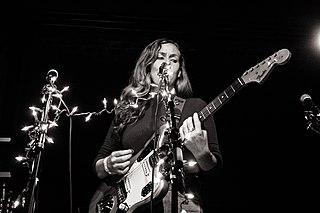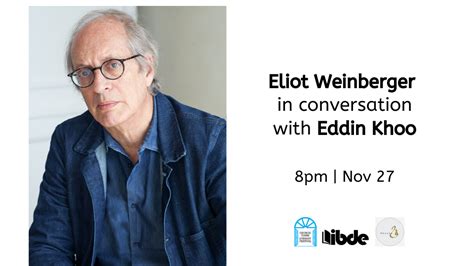A Quote by Ted Kooser
There's always been what I would call the William Carlos Williams strain, in which poems of simplicity and clarity are valued by a different community. I was talking to Galway Kinnell one day, and he said that there was an audience for poetry up until about 1920 and then, from that point on, the poets and the critics drifted.
Related Quotes
The major poets of New Jersey have all suffered, whether it's Whitman, who lost his job for 'Leaves of Grass,' or William Carlos Williams, who was called a communist, or Ginsberg, whose 'Howl' was prosecuted, or myself. If you practise poetry the way I think it needs to be done, you're going to put yourself in jeopardy.
If you examine the history of any playwright of the past twenty - five or thirty years - I'm not talking about the comedy boys, I'm talking about the more serious writers - it seems inevitable that almost every one has been encouraged until the critics feel that they have built them up beyond the point where they can control them; then it's time to knock them down again.
Poetry itself is music. I'm just lucky that I can convert it into music. William Blake is my favorite poet of all time, and he said that he wasn't quite familiar with the sounds of music. If so, he would have been a musician. All of his poems are all like songs, and that's how I always try to start my thoughts.
I'm more than a little suspicious of humor in poems, because I think it can at times be a way of getting a reaction out of a reader, or an audience, that is something closer to relief: i.e., thank god this isn't poetry, but stand-up comedy. Some poets are really funny, but more often poets are fourth rate stand up comics at best. But they benefit from the sheer relief of the audience.
I personally believe the role of poets as poets (which is something different from our obligations as citizens, community members, humans) is to write poems. I believe this because I am quite sure poetry can do something no other form or writing, or human activity, can, at least not in such a powerful and distilled and undeniable way. And that we need this type of thinking for our survival as individuals and as a species.
That’s what i love about poetry. The more abstract, the better. The stuff were your not sure what the poets talking about. You may have an idea, but you cant be sure. Not a hundred percent. Each word, specifically chosen, could have a million different meanings. Is it a stand-in ?a symbol for another idea? Does it fit into a larger, more hidden, metaphor? ...I hated poetry until someone showed me how to appreciate it. He told me to see poetry as a puzzle. Its up to the reader to decipher the code, or the words, based on everything they know about life and emotions.
If I'm still wistful about On the Road, I look on the rest of the Kerouac oeuvre--the poems, the poems!--in horror. Read Satori in Paris lately? But if I had never read Jack Kerouac's horrendous poems, I never would have had the guts to write horrendous poems myself. I never would have signed up for Mrs. Safford's poetry class the spring of junior year, which led me to poetry readings, which introduced me to bad red wine, and after that it's all just one big blurry condemned path to journalism and San Francisco.
I would say there are different kinds of poems. There are things that poets in the history of poetry hit upon when they're very young that can never be outdone and it's a remarkable, strange experience when you think of say Arthur Rimbaud who write poetry between the ages of 17 and 21 whose career was over by the time he was 22.
I visited Paterson many years ago - 20 some years ago as a kind of day trip because of William Carlos Williams, because of Allen Ginsberg having lived there. And I went to the Great Falls and sat really in the exact same spot as Adam Driver does as Paterson. And I walked around the factory buildings, and I was rereading - I was reading at the time the epic length poem "Paterson" by Williams.






































